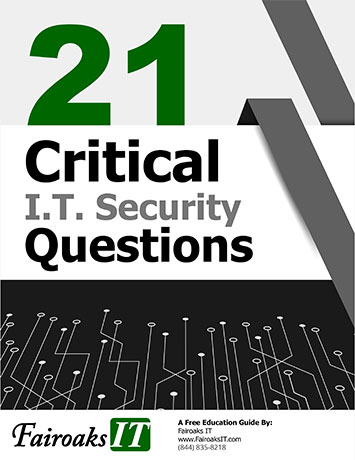

Technology has evolved leaps and bounds over the last 20 years. In fact, in the next few years, the first generation to grow up with smartphones and social media, will join the workforce. It might seem like Generation Z will be the most cybersecure generation, considering they’ve always had the Internet and other advanced technologies at the tips of their fingers, but reports are starting to show that this is not the case. Many business owners fear that Generation Z’s desire to share content online will lead them to accidentally reveal sensitive information that can cause financial, legal and branding damage to their business.
Online scammers have surely taken note of the power that social media influencers have over their fans and followers. Steve Durbin, CEO of the Information Security Forum, believes that organized criminal groups will begin posing as influencers in an effort to manipulate tech-dependent individuals into giving up sensitive information related to their employer. He’s not the only business leader who’s concerned either.
According to a study from the UK’s advisory, conciliation and arbitration service, 70% of surveyed managers were concerned about Gen Z entering the workforce. Instant gratification, resistance to authority and poor faceto-face communication were listed as the main concerns. Additionally, Entrepreneur magazine has stated that many Gen Zers struggle to differentiate between friends they’ve made online and those in the real world. The National Cybersecurity Alliance’s Annual Cybersecurity Attitudes And Behaviors Report Millennials and Gen Zers are more likely to experience a cyberthreat. That report also stated that Gen Zers and millennials have had their indentities stolen more often then baby boomers. There's good reason for business leaders to be concerned about the next generation entering the workforce.
If you’re a business leader who’s worried about cybersecurity and bringing the digital generation into your workplace, don’t fret quite yet. There are plenty of things you can do to prepare your business and ensure it stays cyber-secure. You must be proactive if you want your company to keep upto-date with the best cyber security practices.
One of the first things you’ll want to do is implement or update a cybersecurity training program. You need to have every member of your team buy into a cybersecure culture, and the best way to get them on the same page is with a training program. That way there will be no questions, and cybersecurity practices won’t change from employee to employee. When new employees start, you will already have a cybersecure culture established, so it will be much easier to train them on your processes.
“When new employees start, you will already have a cyber-secure culture established, so it will be much easier to train them on your processes.”
Additionally, you want to ensure that all of your software is receiving its necessary updates. Failing to update software can leave your company vulnerable to cyber-attacks since those updates usually fill any holes that hackers can exploit. When a new software update is released, try not to wait. If your employees use smartphones for work, make sure they have the proper security software installed and that it stays updated.
Another great option to take care of all of your cybersecurity and IT needs is to hire a managed services provider. With an MSP, your business will have its data backed up, the reliability and quality of your computer systems will be improved and you’ll save time that you can reallocate elsewhere in the business. There’s no better or more affordable way to improve your company’s cybersecurity than by hiring an MSP to take care of all of your technological needs.
While the new generation will certainly come with their own set of challenges and obstacles, you don’t have to worry about their cybersecurity practices if you’re proactive. Use password managers, hire an MSP and start a training program as soon as possible to jump-start the creation of your cyber-secure culture. We’ve introduced new generations to the workforce many times before, and Gen Z shouldn’t be more challenging than any of the others. There will just be slightly different challenges.








